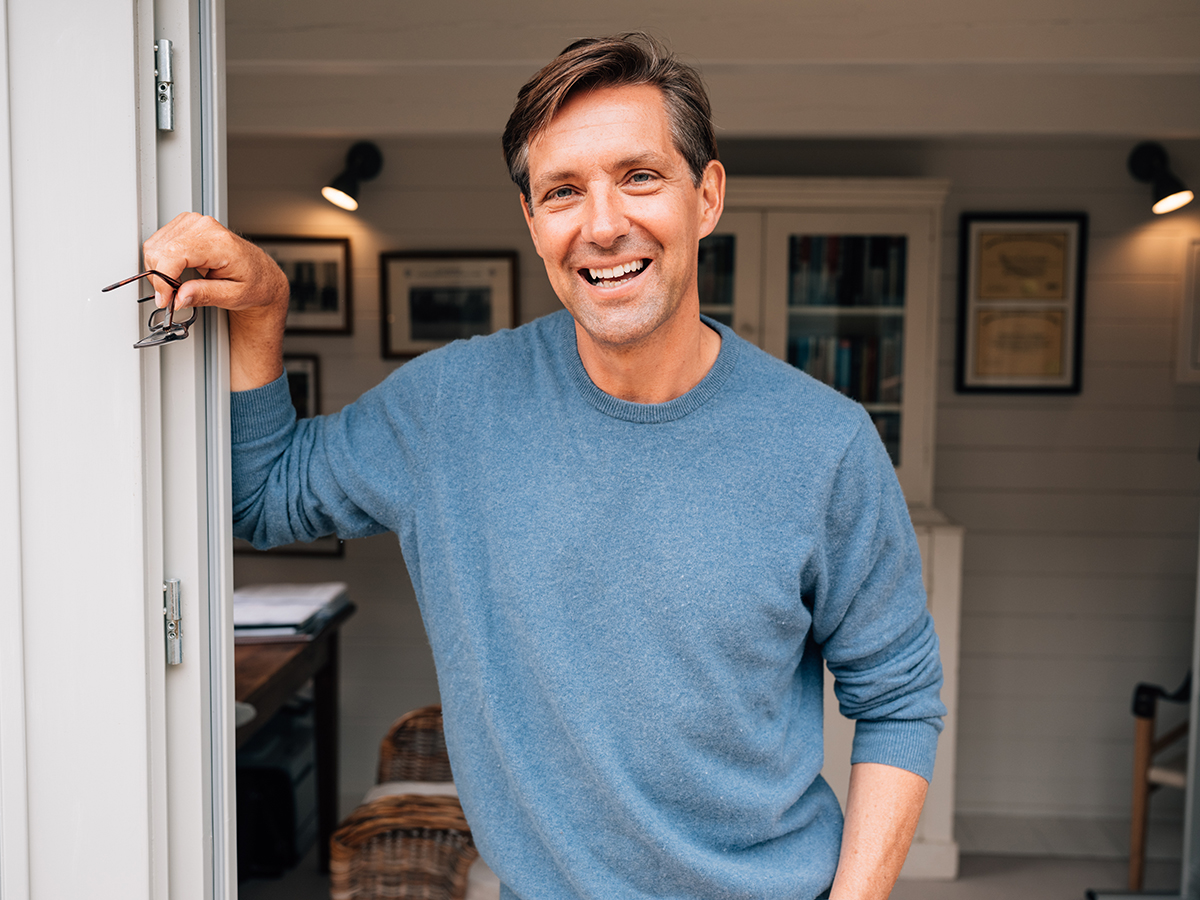
Simon Hodges. Photograph by Matt Porteous
In last month’s column, life coach Simon Hodges explained how and why problems arise in familial relationships. Here, he shares his top tips for breaking free from a competitive mindset and reactionary behavioural patterns
From an early age we are taught to live in scarcity. We learn that the world is made up of limited resources and that we are in constant competition for them. We talk in ‘not-enough’s, and think in terms of wins and losses.
Many of the families I work with are built on this model. They are driven by fear – fear of loss, and of losing – which often leads to huge financial success achieved through the relentless exertion of control. But when the world you have built is founded on fear, you end up believing that control is the only thing that can stop you from getting hurt. And if the stakes are so high, why would you ever delegate and willingly allow uncertainty into your life?
Follow LUX on Instagram: luxthemagazine
Time and again I see how this competitive mindset ultimately erodes trust. It is a vicious cycle which leads to parents feeling isolated, believing that no one can understand the weight of their responsibility. This, in turn, can leave children feeling unwanted and unneeded. In the ‘I win, you lose’ culture, it turns out that everyone feels like they are losing!
With this lack of trust and destructive sense of competition, families learn to live off a pattern of reactionary behaviour. The smallest criticism and briefest remarks are often met with machine-gun fire (over)reactions. We go from nought to sixty in a matter of milliseconds. We assume we are being judged and fall back into a habit of confrontation and conflict, often without even meaning to or knowing why.
So, how can we step out of these unwanted patterns of behaviour?

Photograph by Matt Porteous
The Journey
Changing deep-seated patterns is one of the most difficult things we can (try to) do, and it is where I focus a lot of my time and energy in helping the families I work with. In many ways it is like recovering from an addiction. It is extremely tough (even brutal) at the start, messy and confusing in the middle, but incredibly rewarding in the end.
The first step is to accept that all change begins with awareness. Understanding what the behaviour is, and coming to terms with the damage it has done and will continue to do to yourself and those around you, is essential in establishing the ‘why’ behind your desire to change. It is also a key stage in realising that although you are part of a family, only you can be responsible for changing your behaviour.
Read more: Simon Hodges discusses why we act the worst with those we love the most
In truth, the reality of changing habits is that most people won’t. Willpower alone can’t get you through. You have to make making a change a priority, keep an open mind alongside a willingness to try almost anything, and have people who can hold you accountable along the way (this is where a coach can be indispensable!). To help you out, here is a small selection of my top tools for interrupting unwanted behaviours.
‘Mind the Gap’
In every family there are points of conflict which seem to recur and repeat like a broken record. The same arguments eagerly pop up and our reactions become more and more automatic and involuntary the longer this goes on, and eventually, we lose ourselves to our unconscious behaviour.
Before you bundle onto a runaway train of outrage and confrontation: ‘mind the gap.’ Take ten to twenty seconds to pause, breathe and do nothing. Give yourself the space to interrupt this old pattern and ask yourself a better question – i.e. ‘How would the most loving version of myself behave right now?’
I often ask my clients and their families to come up with a familiar code word which anyone can use at any time to press pause on an argument (using your dog’s name works wonders here…!) and take stock.

Photograph by Matt Porteous
Laugh at Yourself
‘The man who trips is the last to laugh at his own fall, unless he happens to be a philosopher.’ – Baudelaire
We spend so much time in our heads and our own busy little worlds that reality begins to distort our own version of the way things work. Learning to laugh at yourself is the fastest way to step out of your ego and the destructive behaviours which feed off it.
Read more: Entrepreneur Wendy Yu on creativity & charity
Self-deprecation and laughing at your own foibles and falls make even the most embarrassing and excruciating failures seem inconsequential. It diffuses tension; it pulls the rug from under the ‘serious’ and allows you to distance yourself from your reactive ‘self’. Laughter lets you step out of your old stories and see them for what they truly are. It also brings joy, and this joy brings families together – it lets us cross from fear to love.
Words, words, words
I’ll get the cliché out of the way first: if your friends spoke to you the way you speak to yourself, how long would they be your friends for?
The language you use to describe the world you live in is true from the moment you use it.
Language alters the way you see things and how you interact with those closest to you. You can convince yourself of anything with the right words, and you can change your behaviour if you slowly begin to change the way you describe your life and the people around you. What words make up your internal monologue? Are they keeping you small and making space for fear, or are they empowering you to move away from old beliefs and behaviours?
The Nub of It
Scarcity seeps into everything once you let it in. It is a world view built on the fear of missing out, of losing and being lost, and it keeps us small in every way. Scarcity happily offers up control as the solution to all anxiety, and then it prescribes confrontation and conflict as the most direct route to a feeling of superiority and self-worth. In a culture or family grown on the assumption of lack, scarcity wins all.
But if we step out of old, competitive patterns of behaviour and break free from a reactionary approach to our relationships, we can stop fear in its tracks, we can pass from scarcity to abundance, and in an abundant world, trite though it may sound, everyone wins.
Find out more about Simon Hodges’ work: simonhodges.com; @simonhodgescoaching











Recent Comments